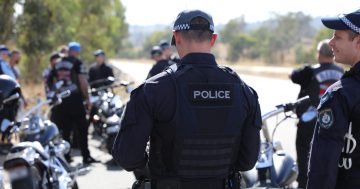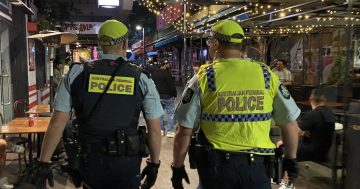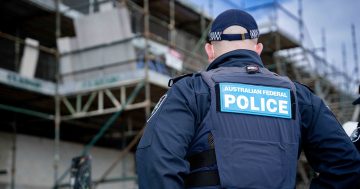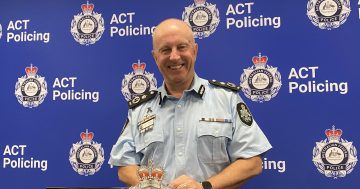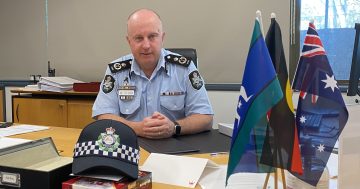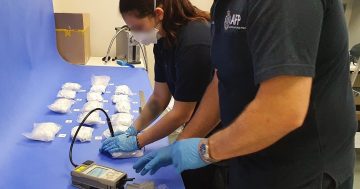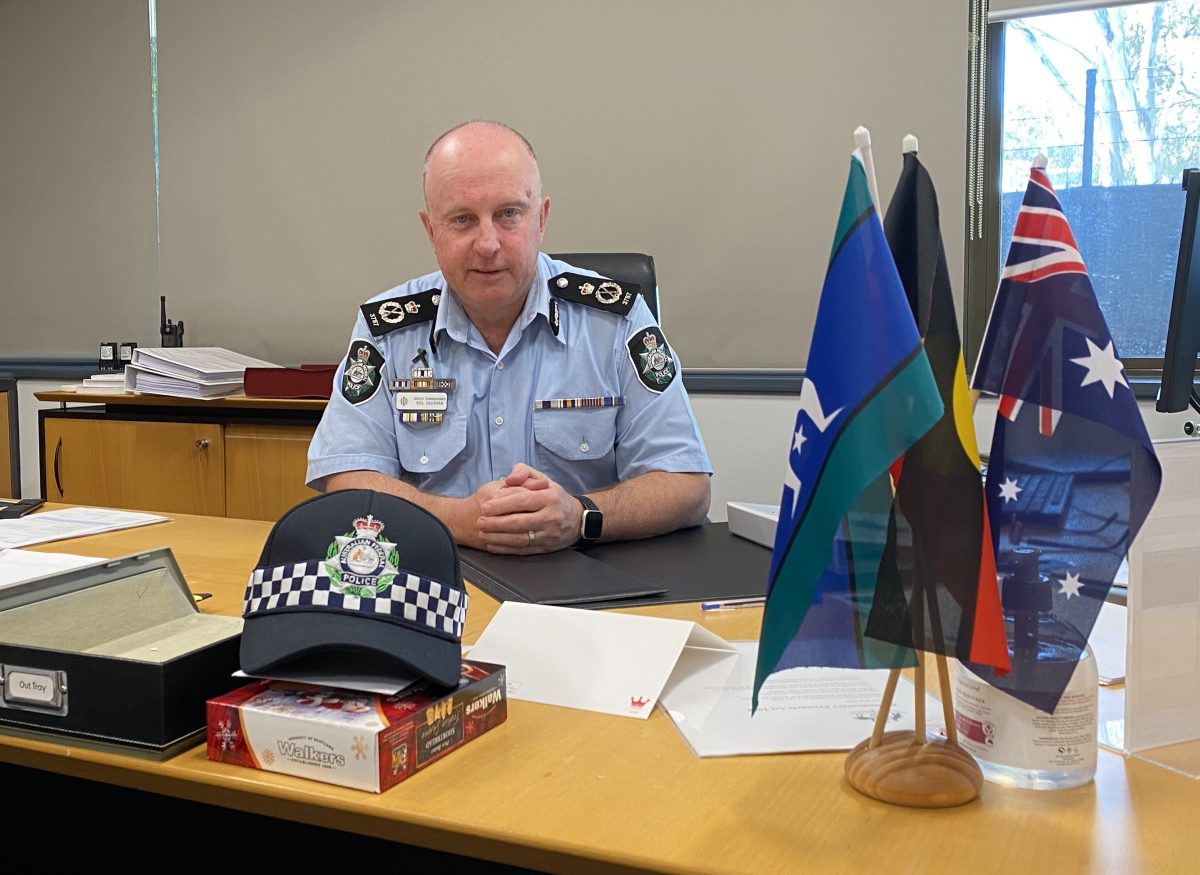
ACT Policing Chief Police Officer Neil Gaughan wants family violence issues to receive more attention in 2023. Photo: Claire Fenwicke.
It’s been a year of unthinkable tragedy and operational success for ACT Policing, but looking back on 2022, Chief Police Officer Neil Gaughan started with the positives.
“I think the highs have been things like Operation TORIC, which for us operationally has been a really good success – over 150 apprehensions and well over 350 charges [since August],” he said.
Operation TORIC (Traffic or Recidivist Investigations Canberra) targets high-risk offenders on ACT roads with a focus on repeat offenders. It’s gone from a pilot program to a permanent fixture, but it hasn’t received any government funding to happen.
Instead, CPO Gaughan said they had “robbed Peter to pay Paul” to make it work.
“We risk manage resources every day of the week … I don’t have any spare capacity,” he said.
“We’ve got less people patrolling, we’ve got less people in our traffic area, we’ve got less people in some of our intel area, but it’s just the way we have to manage it.”
However, TORIC has decreased house burglaries, stolen motor vehicles and other offences, and its capabilities will evolve over time to address the crime of the day.
Body-worn cameras and intel-led policing have ramped up over the past year, and the second PACER team also came online.
Police, Ambulance and Clinician Early Response (PACER) began life as a “proof of concept” in 2019.
It’s a team of three who travel together in an unmarked vehicle to remove any stigma associated with having a marked police vehicle called to a person’s house.
The police officer is there to secure the scene and ensure the physical safety of the person experiencing a mental health emergency, other onlookers and the other two team members.
The paramedic does a physical health check and addresses any medical needs.
Finally, the mental health clinician conducts a comprehensive mental health assessment of the patient.
This year has also seen a fair amount of tragedy for the Territory.
“Probably the most difficult thing for us to get our head around is 18 fatalities this year, so far,” CPO Gaughan said.
“Speed, alcohol and drugs are probably the three main issues, not for all of those, but it’s something obviously that worries us.
“A place like Canberra should never have that many fatalities. It’s inexcusable.”
Family violence matters had also increased, which CPO Gaughan said wasn’t getting enough attention.
This year there have been more than 3000 calls to police for help.
“I think we need to do things slightly differently. We need to mix it up,” CPO Gaughan said.
“Rightly, we focus on the victims of this crime. We make sure they have the necessary support, but we’ve got to start looking at the perpetrators and ensuring we’re actually treating their behaviour.”
CPO Gaughan said it was usually men in their late teens and onwards who commit family violence offences, so he wanted to reach kids early.
“We know once a male’s been involved in violence towards one victim, they’re likely to continue that with other victims, so we’ve got to get into schools and start educating young men, in particular, that that behaviour is not ok,” he said.
“It’s something we’d have to do really, really cautiously because if we’re addressing a classroom, there’s probably some kids in there who have been subject to family violence themselves.
“I think where we need to put our focus next year is on education.”
There’s also been substantial policy reform in the Territory in the past six months.
The ACT will soon raise the minimum age of criminal responsibility to 12, which CPO Gaughan felt was a positive.
“I think that if we get the way we deal with those 10 and 11-year-olds right in relation to, not a law enforcement outcome, but a social service, education, health outcome, that will have really good impacts on the community for decades to come,” he said.
However, there are concerns about whether the supports will be in place for these children to have somewhere safe to go.
“None of these kids who come to our attention don’t have problems somewhere else, whether at school or at home,” CPO Gaughan said.
As for upcoming drug decriminalisation, we’ll have to wait a few months for the data to come in.
“Wastewater will tell us whether there’s been an increase [in drug use], hospital admissions will tell us if there’s been an increase as a result of drug use, road trauma potentially is also a measurement,” CPO Gaughan said.
“The other thing we need to measure is, do we see an increase in terms of people actually seeking treatment for drug addiction based on the fact there’s not going to be that stigma attached to taking drugs, particularly heroin.”
A review is also underway into the Territory’s use of spit hoods, with the report expected to be completed by the second week of January.
CPO Gaughan said while most other jurisdictions had moved away from them, he wanted to know how members would be protected.
“Some have introduced legislation where if someone spits at somebody, we can take a blood test to determine whether or not [the spitter] has Hep C,” he said.
“[CAHMA] has a machine where they can prick someone’s finger and in an hour or so can determine whether or not someone has Hepatitis.
“It’s a high likelihood we won’t use [spit hoods] anymore, but ultimately it’s a decision for the Commissioner of the AFP.”
Finally, CPO Gaughan touched on the letter sent to him from Director of Public Prosecutions (DPP) Shane Drumgold SC regarding his concerns about how ACT Policing handled the case against Bruce Lehrmann.
“We still need to have a strong working relationship with the Office of DPP to ensure the safety and security of the Canberra community,” he said.
“I will continue to talk with my staff about that over the next couple of days, but the government’s thinking about what their next step is, obviously ACLEI has got a referral as well, so with all those inquiries underway, it’s probably not appropriate for me to say anything else.”
Resource management will be a “more serious” conversation ACT Policing will be having with the government next year.
“We don’t have any problem attracting police … I don’t have any spare cash,” CPO Gaughan said.
“With the operational tempo continuing to grow and the population growth, we need to have a serious conversation around whether the numbers we have to police Canberra are adequate.”












